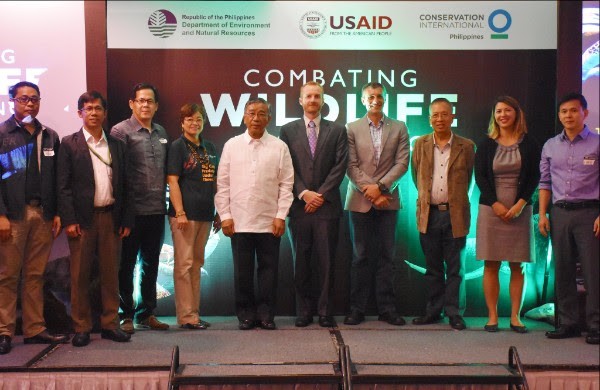Press Release Shim
Speeches Shim

For Immediate Release
The United States Agency for International Development (USAID), Department of Environment and Natural Resources (DENR), and Conservation International convened partners from law enforcement agencies and environmental organizations for a forum on stamping out illegal wildlife trade in the Philippines.
The Philippines is a transit hub for illegal trade routes, particularly for ivory and pangolin. Hunting and poaching upsets the ecology of forest grounds and agricultural lands. Wildlife trafficking also fuels corruption and crime, undermining opportunities for sustainable and inclusive growth.
At the forum, USAID Philippines General Development Officer Robert Pierce called for a united front to counter poaching, trafficking, and illegal trade of wildlife species and their byproducts.
“USAID sees illegal wildlife trade not only as a threat to the environment, but also as a threat to sustainable development,” Pierce said. “While the fight to end wildlife trafficking may prove to be challenging, our partnership with the national and local governments has made significant gains to enforce environmental and wildlife laws.”
Through a five-year, $25 million Protect Wildlife project, USAID has been working with the DENR and enforcement partners in trafficking hotspots to boost the knowledge and skills of environmental and wildlife law enforcement officials. Through this project, USAID has trained over 400 men and women, including forest guards, fish wardens, and indigenous people, to identify and address environmental and wildlife crimes through a stronger and more coordinated response. The project has also been working to curb the demand for wildlife projects by educating communities about biodiversity.
“We have to think ahead and act together because illegal wildlife traffickers have also been evolving and adapting innovative and creative ways to elude and escape detection, arrest and prosecution,” concluded DENR Secretary Roy Cimatu.

Comment
Make a general inquiry or suggest an improvement.